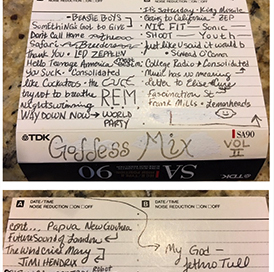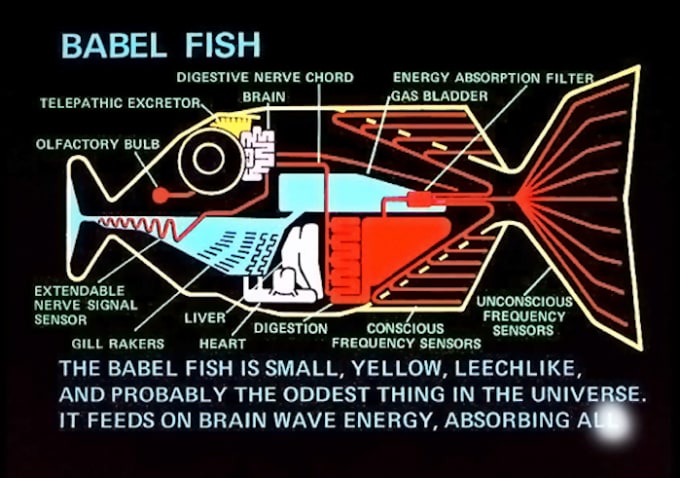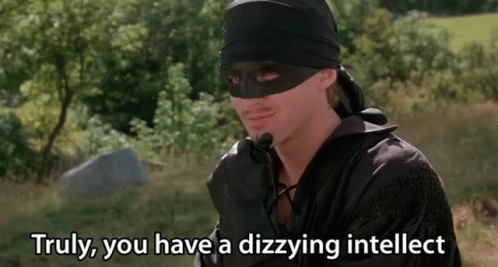I turned 47 on February first this year.
This birthday, for no particular reason, had me feeling reflective - thinking about where these 47 years have taken me and how they have shaped the way I see the world.
This was often happening during dog walks or drives while I listened to music, and I ended up making a playlist built around those reflections. As the musing-turned-project evolved, I decided to work on joining together two 47-minute playlists, which is just about the length of the mixtapes I used to make as a teenager.Those mixtapes were often, but not always, created for women I was interested in. On occasion though, I'd make several copies of a tape using the high-speed dubbing feature on my stereo. Those tapes were for my closest friends - a way to let them know about the artists or songs I'd been listening to. I liked that form of sharing. It required work and thought and time. It was a kind of curation that predated "content curation."
By the time I was in my 20s, those mixtapes became mix CDs.
But mix CDs were not the same. Without the dual tape deck, that cha-chunk of the stop and start, the plan for the end of side one, the need to follow that with a side-two opener, the sense of potential.Then mixes moved to streaming playlists. Sharing became instant. Sharing media became ubiquitous.
I'm not here bemoaning the loss of mix tapes. It's fine that they went away. Other cool things have taken their place. In my late forties, however, there is a nostalgic quality to the ways I consumed music as a teen.
And so, I used the 90(ish)-minute mixtape as my template, and in the time since I built the playlist, I've been thinking about liner notes.
So, here goes...
Two Sides of 47
Side One
- Maná - Clavado En Un Bar
- This banger has followed me around for years. I first encountered it because I knew a woman who discovered the band while studying abroad. It's telling that I once lived in a corner of the Midwest where one required a passport to "discover" the most successful Latin American rock group in the world. But years later, when I was serving tables at City Crab and Seafood Company in New York City, my coworker Omar caught me lipsyncing the chorus while we were prepping the dining room for brunch. Omar was a busboy and expeditor who carried himself like a tough guy but was actually a bit of a goofball. He was surprised I knew Maná and told me as much. The next day he pulled me aside and gave me a freshly burned copy of the Maná Live album. He insisted that it was the only way to truly appreciate the band. It was a connection I didn't know how to make until it happened, and I was thankful. The moment simultaneously made me grateful for the people I knew growing up and yet somehow also made me aware of how my life was steering me away from those roots. Years later still, I became a commuter when I took a job as a professor at Sac State, and I discovered 97.9FM. It's the Latino pop station in Sacramento, and at the right time of day, it's exactly what I need to listen to. I only discovered it because I heard Clavado En Un Bar playing while I was scrolling through the stations on my non-Bluetooth-enabled vehicle.
- Parliament - Wizard Of Finance
- This band and the philosophy they describe through their work have shaped my worldview in too many ways to enumerate here. So I picked one song that provides a peek at what I see in them. This song doesn't make fun of finance as an industry, it dismisses finance in favor of what is actually important. And it does it without posturing or any self-importance. It's just fun and even a little childlike in its description of romance as "the thing" worth investing in.
- Chaka Khan - I Was Made to Love Him
- Speaking of investing in love, Chaka Khan just kills it with this one, and its depiction of a lifelong love that was meant-to-be makes me think of my wife Dora. It's fun and sexy and makes me want to dance.
- Nina Simone - Suzanne
- I was at a Leonard Cohen concert in Budapest when I realized that my spirituality is best encapsulated in the way some artists capture the sublime in the everyday. I decided that if I were ever to organize a religion (something I would never actually do), my hymnals would be selections from Cohen, Waits, and Prine. I would teach others to see the divine in the downtrodden, the broken, and the lost.
- Tom Waits - Chocolate Jesus
- Unfortunately, I can't see myself associating with organized religion ever again. I was raised Catholic, and I liked going to Church. But I always thought it was a place where they told stories intended to be interpreted as metaphors. When I was old enough to recognize that many in the Church expected me to accept the Bible as the literal word of God, I was shocked. It's a book full of words, and even individual words are subject to multiple interpretations. Any attempt to describe the power of creation with mere words falls so far outside of my conception of what reality must actually be that I am left dumbfounded.
- John Prine - Fish & Whistle
- But I didn't ever lose my sense of spirituality. It's a very private part of who I am, but it does guide me. Our experience in the world is beautiful, absurd, and unlikely. Gratitude, humility, and wonder are the virtues I strive to embody.
- Merry Clayton - Gimme Shelter
- I have a funny relationship with classic rock. The Stones, The Beatles, Led Zepplin, Black Sabbath, Yes, and yeah, I'll throw my favorite band in there, the Talking Heads - they have all shaped my music tastes. They are all essential parts of how I listen to music today. But I always felt like they were pushing me to listen to something else. The Beatles wanted me to listen to Chuck Berry. Led Zepplin wanted me to listen to Muddy Waters. The Talking Heads wanted me to listen to Fela Kuti. I still tune into classic rock stations without a sense of shame or irony, but while I'm there, I feel like I am waiting to go somewhere else. That's why I love this cover by Merry Clayton. It feels like I'm in that comfortable space but also in that destination.
- Phoebe Bridgers - That Funny Feeling
- While I still enjoy a lot of classic rock, I do need to make one thing clear. I have a deep and unrelenting dislike of Billy Joel. I have said, on occasion, that I hate Billy Joel, but I think that's not quite right. Hate suggests passion, and my dislike of Billy Joel has never been that meaningful. Kinda like his music. One of the problems I have with Billy Joel is that most of his songs are easy to listen to. If you're not paying attention, you might even enjoy them. But that's the problem, isn't it? He makes schmaltzy easy-to-digest music disguised as thoughtful signer-songwriter work.
- That said, I have zero patience for "We Didn't Start the Fire." I typically find the "list genre" of songs a bit lazy, but that's not the problem I have with the steaming pile of garbage that is "We Didn't Start the Fire." What drives me up the wall is the song's complete rejection of a generation's responsibility for the state for the world just as they were handing it off to my generation. What a fucking copout. If you're going to write a list song, at least acknowledge your role in the complexity of the picture you're painting. That's how you do a list song.
- Christopher Tim - Waloyo Yamoni
- This song is absolutely beautiful and you should probably listen to it stoned. But that's not why it's on my mix. It's on my mix because it's about water and the way it shapes our lives. I grew up next to Lake Michigan. I've lived next to New York Harbor and the San Joaquin River Delta and the Danube River. And now I live in California's Central Valley where rain and snowpack and reservoir levels are something I think about throughout the year. So much of this first side of my mix has been about what goes on in my mind, but it's important to remember that my mind is part of my body. And my body must live in the world where the resources I need are found.
Side Two
- Brazilian Girls - Pussy
- And if you're gonna finish side one with a massive orchestral piece focused on the needs of the body, then you might as well open side two acknowledging that the body is what hungers. Cause it is.
- Gogol Bordello - Wonderlust King
- I remember being surprised by how big the world is. It shocked me. I wasn't ready for that, but once I realized it, I couldn't stop looking. It's wonderful how much we don't know, and the process of learning more is intoxicating.
- Bikini Kill - Rebel Girl
- I married Dora because I love her and I want to build our lives together into something wonderful. As a bonus, she does make me a better person. Like, I cannot explain how boring I would be without her. But beyond that, one of the other places she has had a ridiculously powerful impact on my life is my adult friendships. While I have friends that I made as a child, and they are great and important relationships in my life, I also have friendships established in my time as an adult. These are friendships with smart and interesting people who I respect and admire. But just to be clear, I would never have met these people if it weren't for Dora. She has social skills that somehow allow her to recognize what makes a person awesome. I assume I must have had those skills at one point in my life because my old friends are awesome. Dora, however, somehow kept those skills. She finds good people and helps them recognize that we should all hang out sometime. All the cool people wanna be her best friend.
- Daði Freyr (Daði & Gagnamagnið) – Think About Things
- When I was in my late teens and early twenties, I started to sort out my own taste in music, television, and movies. During those years, I nurtured a kind of snobbishness. I made fun of boy bands, sitcoms, and cheesy romantic comedies because enjoying those things, I assumed, would dull my edginess. Yeah, you read that right. At one point I saw myself as edgy. I admired punk rock choices. I also was interested in - if given the opportunity - sticking it to the man. Later in my twenties, however, I realized I am not edgy. I'm more of a silly person. I recognize how unjust the system is, but I'm not frustrated by my inability to burn it down; I'm frustrated that anyone takes the system seriously. At its worst, the system we call society is mandating poverty for billions, poisoning people, and using violence as a primary tool for social control. At its best, society allows a select few to achieve beautiful and astounding feats. It's so completely off the rails that any proposed solutions to trolly problems are moot. So, I've dropped my snobbishness. I've begun to understand the value of a good pop song in this absurd world and even came to understand the importance of laughing at what that all means.
- Berri Txarrak - Katedral Bat
- I speak only one language, which is a little embarrassing. I've tried to learn other languages, but I freeze up when I don't know how to express myself the way I'd like to. It's a pretty significant shortcoming. Dora and my boys speak Hungarian, a language spoken by just over 10 million people. They are also all proficient in Spanish, which is very useful when traveling in Europe and South America, or just being alive in California.
- This song is in Euskara, the language of the Basque people. It is spoken by fewer than a million people. I learned a few phrases in Euskara while we all lived in Pamplona for six months in 2021. The cultural and linguistic pride I saw in Pamplona made an impression on me. It reminds me of a story from the first few years I lived in Budapest. I was teaching advanced conversational and professional English to a group of scientists who worked for the National Office of Plant Protection and Soil Conservation. I always opened a series of lessons like that with the most obvious question: Why do you want to learn more English? And in this case I wasn't just looking for ideas to guide my lesson planning; I was genuinely curious because many in that office had published scientific papers in major English-language journals. I was wondering what I had to offer. They told me this story:
- A large group of them were attending a major EU conference in Brussels. The EU had gathered scientists from across Europe to discuss the rapid spread of invasive ragweed. The official language of the conference was English, and everyone felt confident that they would be able to contribute since the vast majority of conference participants would be working in a second language. Well, when a group of French scientists stood to speak, they decided they would speak French. So, when the Germans addressed the conference they decided, "If the French are going to use French, then we'll speak German." This prompted the group from Italy to use Italian, and then the Spanish started speaking in Castellano. Then it was time for a group of Czech scientists to share their findings, and they started speaking in Czech. The facilitators of the conference quickly put a stop to that. They explained that none of the minor EU languages could be used because the conference lacked translational services for such languages.
- So, yeah, the Hungarians realized they would have to work harder to get their voices heard within their own scientific community. That story taught me so much about language and culture and privilege that it shaped my career choices.
- Fishbone - Unyielding Conditioning
- I got into Fishbone when I heard Everyday Sunshine on MTV's 120 Minutes. I rode my bike to the record store and got several albums by the group. This was years before I learned about Parliament/Funkadelic, but looking back now, I can see how being drawn to Fishbone was predictive of my eventual discovery of P-funk. The joyous, wild, and irreverent celebrations of life hit me right where I dance. This particular Fishbone song, however, holds a special place. The simultaneous acknowledgment of the dystopian features of modern life juxtaposed with the hopeful optimism of Afro-futurism is just so perfect. And it really speaks to how I've learned to see the world: It's an intentionally broken place with the potential to be the place where no one is broken "and togetherness will guide us safely through all storms."
- The Coup - The Guillotine
- Shortly after meeting Dora back in 1999, I recognized a core value that informs my worldview. At a hostel's take-one-leave-one library in Thessaloniki, I swapped out the copy of Siddhartha I had brought on that backpacking trip for a book on the history of the post-Stalin Soviet Union. The Hungarian revolution of 1956 was one of the first major events recounted in the book, and here I had just met the most lovely Hungarian woman. So I was especially engaged in that retelling of history. The Hungarians faced an impossible struggle as a powerful authoritarian empire exerted its will on this small nation twice weakened by world wars. Learning about it at that point in my life calibrated my moral compass.
- I abhor the use of power to marginalize those with less power, and I believe those with less power are justified in fighting back against those who would work to marginalize them. Even when the fight is impossible, the fight is righteous. So much clicked into place for me when that became clear.
- But in the time since, I've observed a technique many powerful people use to take advantage of people who claim to believe society should empower the powerless. Those in power work hard to present themselves or their in-group as marginalized by the authorities. They highlight characteristics and experiences that make life challenging and use those challenges to argue that society has oppressed them more than others. "Why is everyone demonizing billionaires?" "White men have to do so much more to advance now?" "Labor's oppressive demands make it impossible for the company to turn a profit." "That lesson blames my child for a historical injustice." "That person's love life is oppressing my religious freedom."
- Everyone's the most aggrieved, the most put upon, the most marginalized. Which is all bullshit, of course, but it works. It allows people to believe they're justified in their attempts to fight against another's full participation in society.
- And that makes me nervous about calls for action, calls to arms, or calls for resistance. Too many of those calls are astroturf efforts funded by the powerful who would like nothing better than to see the masses turn on one and other.
- But I do love it when I hear such a call coming from an earnest and informed voice.
- Bill Hicks - Politics in America
- My friends who were a bit more skilled at making mixtapes often inserted quotes or excerpts from movies between the songs, kinda like the sketches between the songs on hip-hop albums in the 80s and 90s. It's something that streaming can't make room for.
- Liz Phair - Soap Star Joe
- I heard Liz Phair's Supernova on the radio my senior year in high school, and I said to myself, I says, "I gotta hear more stuff like that." So, I went to the same record store where I had bought my Fishbone albums a year earlier and I asked for the new Liz Phair album. The record store guy handed me a copy of Exile in Guyville, told me I would like the album, and rang me up. Funny thing about that exchange, the song Supernova is not on Exile in Guyville. I remember being disappointed when I scanned through the tracks and couldn't find the song I wanted, but then I started listening to Exile as a whole. It was the first time I listened to what I would call a challenging album. I felt like I was listening to a woman explain being a woman, but critically, I didn't feel like she was explaining it to me. She didn't give a shit if I listened or not. She was explaining her experience because she wanted to. The album was clearly something Phair made for herself.
- I don't think I understood (or understand) Liz Phair's experience as a woman, but I did learn how the world is not only different for people who aren't like me, but it is also complete and coherent and wild and tempting and filled with risks and fear and fun and anger and laughter. It's kinda like my world, but not at all like it in any way.
- Lou Reed - Charley's Girl
- My dad introduced me to Lou Reed. He had Transformer on a cream-colored cassette tape, and he played it on our cross-country camping trips when I was a kid. I loved the whole album right away, but the best part of it was how the lyrics grew more interesting and more complicated as I got older. Sex, and drugs, and gender, and race, and clubs, and art, and desperation, and nihilism, and just adult life - all of it was there, but hidden behind slang and innuendo. I appreciate that my dad trusted me to hear it all as a kid and understand it all as I grew up.
- Lauryn Hill - Everything Is Everything
- I first heard the phrase "everything is everything" on Donny Hathaway's live album. It is a much more beautiful and hopeful way of expressing the clichéd "It is what it is." Lauryn Hill makes the phrase sing here in a way that lifts me up.
- Modest Mouse - Missed the Boat
- I started making this list shortly after the passing of Jeremiah Green, the drummer for Modest Mouse. This song, but really the band's entire body of work, captures a worldview that feels like home to me. My hopeful agnosticism comes through in the line, "We were certainly uncertain, at least, I'm pretty sure I am." The world is an incredible place because I can never know even a significant fraction of it, just as the world can never know a fraction of the whole of me.
- Amanda Palmer - Ukulele Anthem
- What do you do with an unknowable world that can never truly know you? I think Amanda Palmer gets pretty close to the answer here.
I also put the list together on YouTube.











